Water is life. Without it, you won’t last more than three to five days—sometimes less in extreme conditions. You can survive weeks without food, but take water out of the equation, and the clock starts ticking fast. That’s why it’s shocking how casually most Americans treat it. A dripping faucet here, a long shower there—no big deal, right?
But what happens when the taps run dry? What happens when the grid goes down, the trucks stop rolling, and the grocery store shelves are stripped bare? Suddenly, every wasted drop becomes a death sentence waiting to happen.
The brutal truth is this: most people (even preppers) are wasting gallons of water every single day without even realizing it. And if you don’t change your habits now, your carefully stored supply won’t last nearly as long as you think.
How You Waste Your Water Without Knowing It
Long Showers and Daily Baths
It feels normal today. You stand under a hot shower for ten minutes, maybe fifteen if you’re tired. But that’s 25–37 gallons gone in a single sitting with a standard showerhead. Do that daily, and you’ll chew through over 900 gallons in just one month. For one person!
Multiply that by a family of four, and you’ll realize why your 55-gallon drum of “emergency water” won’t even last two weeks if you keep normal habits. FEMA (I know, but still…) recommends at least 1 gallon per person per day for drinking and basic hygiene, so a family of four needs 4 gallons daily, meaning that drum lasts just 13–14 days.
When SHTF, standing under running water isn’t just wasteful—it’s reckless. You don’t need daily showers to stay clean. In fact, militaries around the world train soldiers to get by with sponge baths and wet wipes for weeks at a time.
Flushing Toilets
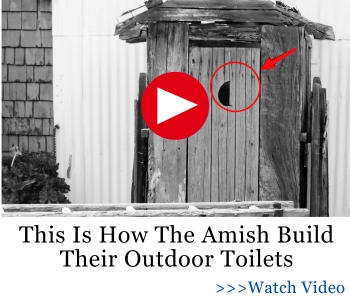 Modern toilets are federally mandated to use 1.6 gallons per flush, but older models can waste 3.5 to 7 gallons per flush. That doesn’t sound like much. Until you add it up. A family of four could burn through 20–40 gallons per day just to push waste down a pipe, depending on your toilet’s age.
Modern toilets are federally mandated to use 1.6 gallons per flush, but older models can waste 3.5 to 7 gallons per flush. That doesn’t sound like much. Until you add it up. A family of four could burn through 20–40 gallons per day just to push waste down a pipe, depending on your toilet’s age.
Now imagine a grid-down event. If you have an electric pump-assisted septic system, it won’t function without power. City sewer lines could back up. Every flush is basically wasteful and it could become dangerous quickly. Yet many preppers keep flushing like it’s business as usual, draining their stash one button push at a time.
Leaky Faucets and Pipes
Here’s a sobering fact: one drip per second wastes about 3,000 gallons per year. That’s not a “slight inconvenience.” That’s the difference between life and death when water supplies are limited.
In normal times, a leaky faucet means a higher water bill. In a crisis, it means watching your precious stored supply vanish into the ground without ever reaching your lips. And because leaks often start small, most people don’t notice until it’s too late. Are you checking your faucets and pipes regularly?
Cooking and Cleaning
Think about your kitchen habits. Do you boil a big pot of pasta, then dump the water down the drain? Do you wash dishes under a running faucet? Do you rinse clothes every time they’re worn?
Each of these everyday habits can drain gallons from your supply. In survival mode, you can’t afford “business as usual.” Every pot of water needs to be reused, every rinse planned, every cleaning method minimized.
Improper Storage
Even the best-intentioned preppers lose water because they stored it wrong. Cheap plastic containers crack. Lids don’t seal. Barrels sit in the sun, breeding algae. Or worse, the water isn’t rotated regularly, and years later it’s not even safe to drink.
I’ve met preppers who confidently told me they had 100 gallons saved—only to find half of it evaporated or spoiled when they finally checked. Storing water isn’t “set it and forget it.” Are you rotating your supply every 6–12 months?
Why Water Waste Is Dangerous (Even Before SHTF)
Most people think water scarcity is only a post-collapse problem. But look around. It’s happening now.
During California’s 2022 drought, farmers abandoned crops because reservoirs ran dry. In some towns, like Jackson, Mississippi, families relied on trucked-in water just to flush toilets. Hurricanes, wildfires, and winter storms routinely leave millions without clean tap water for days—or even weeks.
If you’re wasting water today, you’re training yourself to fail tomorrow. By learning to stretch every gallon now, you’ll build habits that could keep your family alive when disaster hits. And here’s the bonus: you’ll save money on your bills in the meantime.
Smarter Alternatives to Stop Wasting Water
Adopt “Camp Hygiene”
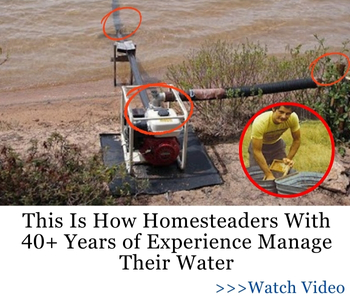 Instead of daily showers, switch to sponge baths or wet wipes. A single quart of water is enough to wash your face, hands, and body if you do it right. Soldiers, campers, and off-grid homesteaders know this trick well. And it works.
Instead of daily showers, switch to sponge baths or wet wipes. A single quart of water is enough to wash your face, hands, and body if you do it right. Soldiers, campers, and off-grid homesteaders know this trick well. And it works.
I learned a lot about minimizing water waste from two homesteaders who have lived off the grid for more than 40 years. They grow their own food, maintain their homestead, and secure their own electricity and water.
Making that kind of effort for decades takes intelligence and incredible attention to detail.
It’s amazing how many of their secrets they were willing to share in the book they wrote, and the section on water truly opened my eyes.
The systems Ron and Johana use on their homestead are complex and developed over time, but they’re much easier to put into practice when someone lays them out step by step—just like they do in this easy-to-follow guide.
And even if their methods of obtaining water don’t apply directly to you as an urban prepper or someone in a rural community, their overall strategy is one you can borrow without hesitation. Get The Self-Sufficient Backyard book and give it a try!
Rethink Toilets
In a collapse, flushing will drain your stash faster than anything else. Composting toilets, sawdust toilets, or even dry-flush systems are lifesavers. Modern composting toilets can turn waste into usable compost with zero water use.
Beyond that, consider simple DIY solutions: even a basic bucket toilet lined with sawdust or peat moss can drastically cut your water use while still keeping sanitation manageable. Planning ahead and testing your system now ensures you won’t be caught unprepared.
The goal is conservation, survival, hygiene, and turning waste into something useful rather than letting precious water disappear down the drain.
Fix Every Leak Now
Don’t wait until collapse. Hunt down every drip in your home today. Replace washers, tighten joints, and seal storage barrels. One small leak in a faucet or hose might seem trivial, but over weeks and months it can add up to hundreds of gallons lost.
Inspect outdoor hoses, irrigation systems, and barrel spigots. Even a tiny leak in a storage barrel can compromise your emergency stash. The gallon you save today may be the one that keeps you alive when taps run dry, and practicing this now builds habits that will serve you under real crisis conditions.
Recycle Water
Graywater is a prepper’s secret weapon. Dishwater, laundry water, even water used for rinsing vegetables can be repurposed—for flushing, cleaning, or watering a survival garden.
Native Americans historically collected water from kitchen and household activities, then used it to irrigate small crops or soak seeds, maximizing every drop they had. You can learn more old-school tricks from this fascinating book.
Similarly, rinse water from vegetables could be poured around fruit trees, and bathwater often went to livestock. Rainwater collection is another must.
Always filter or purify before drinking, but don’t overlook these small daily habits—they’re the difference between using a barrel for a week versus stretching it for a month.
Cook Efficiently
 Steam instead of boiling. Reuse cooking water for soup stock or for making bread dough. Clean pans with a damp rag before rinsing, and store any leftover water from cooking vegetables for future tasks.
Steam instead of boiling. Reuse cooking water for soup stock or for making bread dough. Clean pans with a damp rag before rinsing, and store any leftover water from cooking vegetables for future tasks.
Tiny changes like these save gallons over time. Even something as simple as collecting pasta water to water a garden or clean tools can add up quickly. Cooking efficiently is about conservation and about building routines that extend your survival resources.
When SHTF, you’ll notice how small tweaks in the kitchen become critical water-saving habits, and your family will be far better prepared than neighbors who continue “business as usual.”
Access to enough water is essential for cooking long-lasting meals that are crucial for survival. Here you’ll find a list of over 125 options that could save your life when there will be no supermarkets open or food delivery services available.
Upgrade Storage
If you’re serious, invest in food-grade barrels with tight lids. Store them in a cool, dark place. Check and rotate your supply every 6–12 months—while properly stored water can last years, regular rotation ensures freshness and gives you peace of mind.
Militaries around the world, including Navy SEALs have long employed similar strategies: storing water in barrels underground or in shaded bunkers to prevent bacterial growth, evaporation, and contamination.
GET A NAVY SEAL’S BUG-IN GUIDE
Layered storage, sterilization with small doses of chlorine, and maintaining a clear rotation schedule are key elements of these systems. By adopting even a fraction of these practices at home, you’ll make your emergency stash far more reliable when every drop counts.
Special Tools That Can Save Your Life
Conserving water is critical, but you’ll also need ways to reclaim or produce it. Families who prepare ahead will have a massive advantage:
- Atmospheric Water Generators
Survival is hard to manage in a crisis if you don’t learn from those who have done it for decades—and are still doing it. One of the best examples is the military. U.S. soldiers are often deployed to some of the driest regions in the world. To access clean water even in the desert, they rely on simple but smart technologies.
The good news? Many of these methods are now available to the general population. You can choose from options like:
- The Smart Water Box – easy to assemble on your own, affordable, and portable enough for bug-out situations.
- The Backpack-Sized Water Generator – slightly more complex than the Smart Water Box, but capable of producing larger quantities of water.
Both options share four major advantages: proven efficiency, easy DIY setup, affordability, and the ability to generate significant amounts of water using only air.
- Complex Water Generators
If your plan is to turn your home into a true fortress, portability isn’t your main concern. You’ll want a solid, stable water generator that ensures continuous operation and generous water output. For that, The Water Freedom System is exactly what you need.
Affordable and built on a simple design using components you may already have at home, this system gives you a reliable alternative to the public water network. Read all about what’s involved and secure yourself with a dependable supply.
- Off-Grid Toilets
Composting or dry-flush systems eliminate flushing waste entirely.
- Rainwater Harvesting Systems
Gutters + barrels = hundreds of gallons in a single storm. Pair with a filter, and you’ve got a renewable supply.
The Amish Case
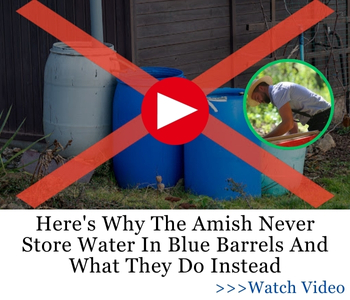 When it comes to water, the Amish have centuries of experience living off the grid. While most Americans take for granted that a faucet will always deliver fresh, clean water, Amish families rely on systems that work no matter what happens to the grid.
When it comes to water, the Amish have centuries of experience living off the grid. While most Americans take for granted that a faucet will always deliver fresh, clean water, Amish families rely on systems that work no matter what happens to the grid.
Wells, hand pumps, cisterns, and rainwater catchment are still common in their communities. They know how to collect water, keep it safe, rotate it, and preserve it so that nothing goes to waste.
In fact, many Amish homesteads treat water storage with the same care as food storage, ensuring there’s always a reliable supply for drinking, cooking, cleaning, and livestock. What’s truly remarkable is the discipline with which they manage these resources.
They’re not guessing how long their water will last—they know, because generations before them lived through scarcity and learned how to stretch every drop. There are countless lessons preppers can learn from their approach, but the Amish don’t exactly broadcast their secrets.
However, there is someone who left the community and shared how the Amish manage these systems from the inside. You can uncover every simple, practical detail by reading The Amish Ways Book.
Final Thoughts
Waste is the hidden enemy in every prepper’s supply. The family that conserves will outlast the family that burns through their stash. And the habits you build today will determine which side you’re on tomorrow.
Don’t wait for disaster. Calculate your daily water use this week and cut it by 20%. Start fixing leaks, practice camp hygiene, and rotate your water stock now. Also, make sure you invest in alternative ways of getting water so your supply never runs out. Be smart and secure your access to the most vital resource of them all…
If you want to become an expert in managing and obtaining water in off-grid conditions, I recommend researching this topic as much as you can. Our blog has plenty of articles with valuable information, but you can also dive into books like No Grid Projects. Learn from the experts and handle any crisis the right way.
You may also like:
Why You Should Never Drink Tap Water Again
This Man Was Nearly Killed In Front Of His Home… For Water! (Video)
How to Purify Water Inside a Car When SHTF (Without Fire or Electricity)
I Tried Drinking Water From My Stockpile and This Is What Happened

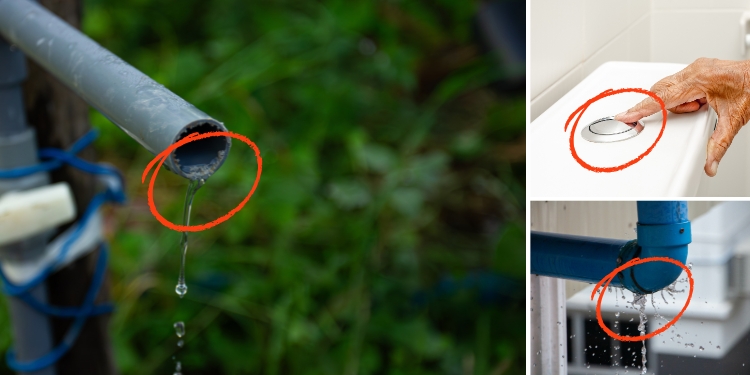
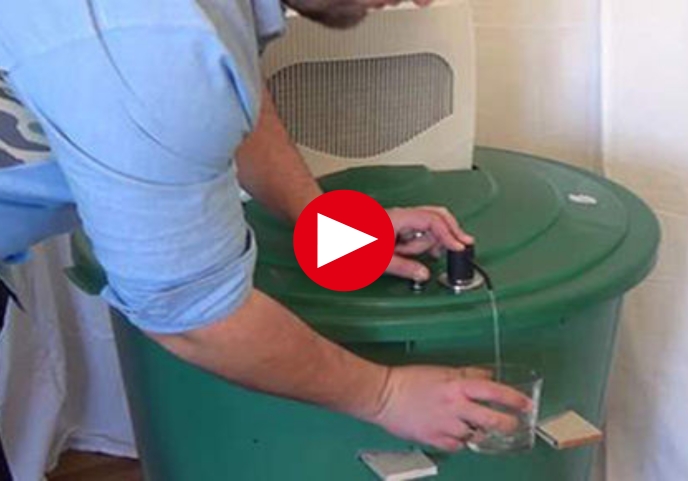
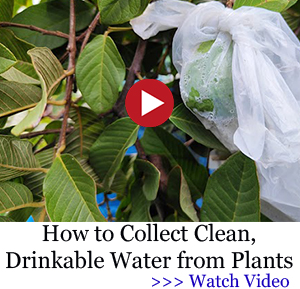










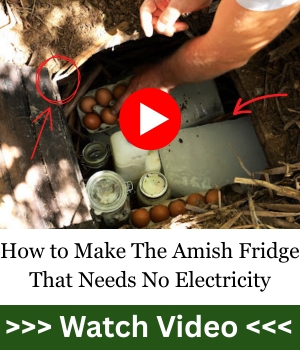








this spring while rotating our stock of water we found 1 5gallon jug with a leak in it. you just never know when something like that will show up. when we went 11 days without power on the 2007 ice storm, we’d use 4 gallon trashbags in the toilet. the feet on the bottom of the seat would hold the bag in place. the rule was if you urinated we left the bag , but if you defecated it was your job to tie it up and put it outside in the large black plastic bag to freeze and not stink. i hung a camp shower in the tub and after a couple days of showers i could fill the 2 gallon shower and have a good gallon left over. i did have alot of practice bathing out of my helmet when in the usaf. this is a good article to get a person to thinking.
have a deep well dug and some well buckets and you won’t have to worry about having warer
LOL
Not that easy.
Lots of money.
Lots of labor.
Can’t just dig a hole and have perfect water to use.
Lot of factors to deal with.
Lose soil
Hard soil
Rocks
Contamination
Chemical’s
Cave in
So if it was that easy to dig a hole in the ground and get water. We all would have one.
Then we would not be talking about water.
Think smarter. Not harder…
stay sharp
PS: maybe some places are that way, but we live every where, so not all areas are the same.
Drilling wells is very common today and through history. People figured out drilling was much easier than digging a long time ago. We have two 500′ deep wells on our property (aquifer), a 50′ “water table” drilled well from the 1920s, and a year round flowing creek. Great-grandparents used the creek for all water originally. The 50′ well was drilled and used for drinking, cooking while the creek was still used for bathing, washing, and animals. The 50′ well was upgraded to an electric jet pump in the 1940s but has been “downgraded” to modern hand pump system today. The deep wells are powered via the buildings which have alternative powering options. Life is all about choices.
Unless you live where I do. If we dig 3′ down we get salt water. Rain barrels are how we do it.
If you have unlimited access to salt water (3′ down) then a solar still is a long term water plan choice. A very simple driven point well to 20′ with a low cost pitcher hand pump delivers all the “salt water” you could ever need with a few minutes of work. Hand pump that salt water into a solar still to passively boil the water and condense it back as fresh water. Collect the salt from the boiler and use as needed for choice preservation, seasoning or barter. Build the system now and use it for garden and landscaping as a “hobby” and cost savings on your municipal water bill. Two systems, solar still and rain collection, means you get water when the sun is shining and when it storms!
Ozark
you are a great resource. bet I get a lot of thumbs up on that one.
YES different answers for different locations.
YES well point driven 20 feet down. Solar still, perfect answer, passive harvest methods always the best, for EVERYTHING you harvest.
That year round creek, time for a water wheel.
“Waste not, Want not” is an idiom that has a specific meaning, but it is neither of the two meanings you suggested. What it does mean, basically, is that if you do not “waste” that which you have (waste not), you will not later “want” that which you have “wasted” (want not).
This saying, is on my ice box and I read it as much as I can, remember to.
“Water”, to much and you drown and not enough water you will die.
Seems to me, water will be the new Gold and Silver. For survival, when you, go thru it.
I heard once that, in the last days that a piece of bread, can buy a bag of Gold.
Guess you can’t eat Gold or silver. They will cast it, into the streets, because it will be worth Nothing… End Times…
stay sharp
PS: none of us will be ready for what to come.
Jesus is the only way.
An additional issue is running the hot water tap and letting the cold/cool water go down the drain while waiting for it to get hot. If you catch it in containers to use elsewhere you’ll be amazed how much water you can save.
Here we go again, water and waste. Does it make sense to use a couple liters of water to flush down 1 pint of urine? One thing is to collect urine and spread it on your garden spot. One of the fertilizers farmers use is urea, which is contained in urine. Sounds strange but is very effective in building up poor soil. Another trick to keep animals away is to save toilet tissue, saved in a plastic bag in a small garbage can and hang it in the garden. The smell keeps deer especially away. I know it sounds gross but if homesteading remotely is very practical.
I was always told urine was not good for plants of any kind, as it tended to be high in sodium, and quite acidic.
guys know, if you pee on the same grass every day, its a dead grass soon.
Things grow back soon, as rain dilutes the PH . Down a wood chuck hole, near a garden, Animals don’t like it. hang in bags, you wont like it.
Fresh horse droppings, PH will kill your plants. Leave it in a pile for a year and its crop safe.
Unless you first control the source of your water the rest of water management is arbitrary. Lower water consumption on a municipal system is simply for lower monthly costs. Bulk storage of water is simply for a short term disruption. A well into aquifer is the solution to seek. That allows you to live a comfortable lifestyle indefinitely assuming you have a “non-grid” way to draw that water. A year round ground source supply is very useful but adds filtration issues which is why it has fallen in favor during modern times. When you are limited to shallow wells (seepage water table) or cisterns (collection) the information from Caleb above become paramount for long term usage. One legal or code item to consider for people in suburbia, most towns will not allow you to be on municipal water and to have a well due to back flow contamination legal issues. The loop hole is a “landscaping well” as a separate system for outdoor agricultural use. These are typically shallow seepage type wells (20ft – 50ft) that help a lot with a garden (no municipal chemicals for the plants) and can very easily be filtered via available products (plumbed or portable) A very resourceful person could probably “engineer” a way to feed water from this landscape system to their house after shutting off the water main valve if a true societal altering situation were to occur (legal and code issues mentioned before). DO NOT DO THIS nor have a system to do this built at any time! Knowledge of how to do it and maybe some parts stored somewhere is your choice here should something very bad happen.
Rainwater collection is best. You can’t just sink a well anywhere you want. Even if you owned a well company you would be in trouble big time for drilling a well in your own yard. After everything hits the fan and if your truck still worked and… you could get pipe you would not get paid if you were asked to for someone. Barter probably. Collection is best and used with filtration. It’s against the law to drill in your yard within so many miles of known subsidence. You can bet someone will turn you in.
Not wishing to be confrontational but must ask; your plan is to do stuff after an event? Is it not a better plan to live a self-reliant life style daily now and if something bad happens there will be no transition you simply continue living. My wells (right next to my homes) are fully functional today and my whole family (six generations) have lived on wells since the 1940s. The newest well was drilled in 2000 with no issues so not sure where your “legal claims” are coming from (specific town ordinance?). Prepping is establishing methods for “continued use without grid power or modern services” not a plan to starting from scratch to build a water plan after the fall. Your comments should direct people to resources and ideas not shut them down due to a specific local issue that may never affect them.
Maybe you misunderstood my comment. A “landscaping well” is legal in most municipalities with a permit and inspection to ensure it is not connected in any way to the home water system. Put in a “landscaping well” ASAP and us it legally for your yard and garden water needs all the time as a part of normal life. Develop knowledge of basic plumbing and water delivery as a hobby and apply as needed if a bad situation ever occurs. Much like knowing how electricity works and what could possibly be done with a generator even without installed transfer switches if grid electricity were to fail.
Modern composting toilets? Don’t they use electric which won’t be available unless your solar or wind backup (if you have them) is working?
Blessed are those with aquifer feed wells. But do you have a backup too? What happens with our increasing earth quakes/shifting land that might cut off your feed?
Never have only 1 way to have/do anything.
Okay … I am cheap, and kind of lazy. I have a faucet, in my back yard that began leaking, and in a short period of time, it began to leak significantly. I tried some self repair, using wraps, but nothing helped. So I turned off water to the house. I filled some jugs for drinking water, and use for cooking. I would urinate in a sealed container, and at the end of the day, pour it and 1 gallon of water retrieved from my rain collection water, into the toilet to flush.
Well … the cheap shows through, not so much of the laziness. I took a sponge bath and washed my hair with about two gallons of water, every other day, and once a week I would turn on the water to my house, to take a shower, and fill the sink for a complete dish washing … My water bill dropped by 60% from even prior to the leaky faucet.
In my neck of the woods i would say…99.9 % of our fresh water flows into the Pacific Ocean every day 24 / 7….plenty for everyone if you really want it …..vote the morons out.